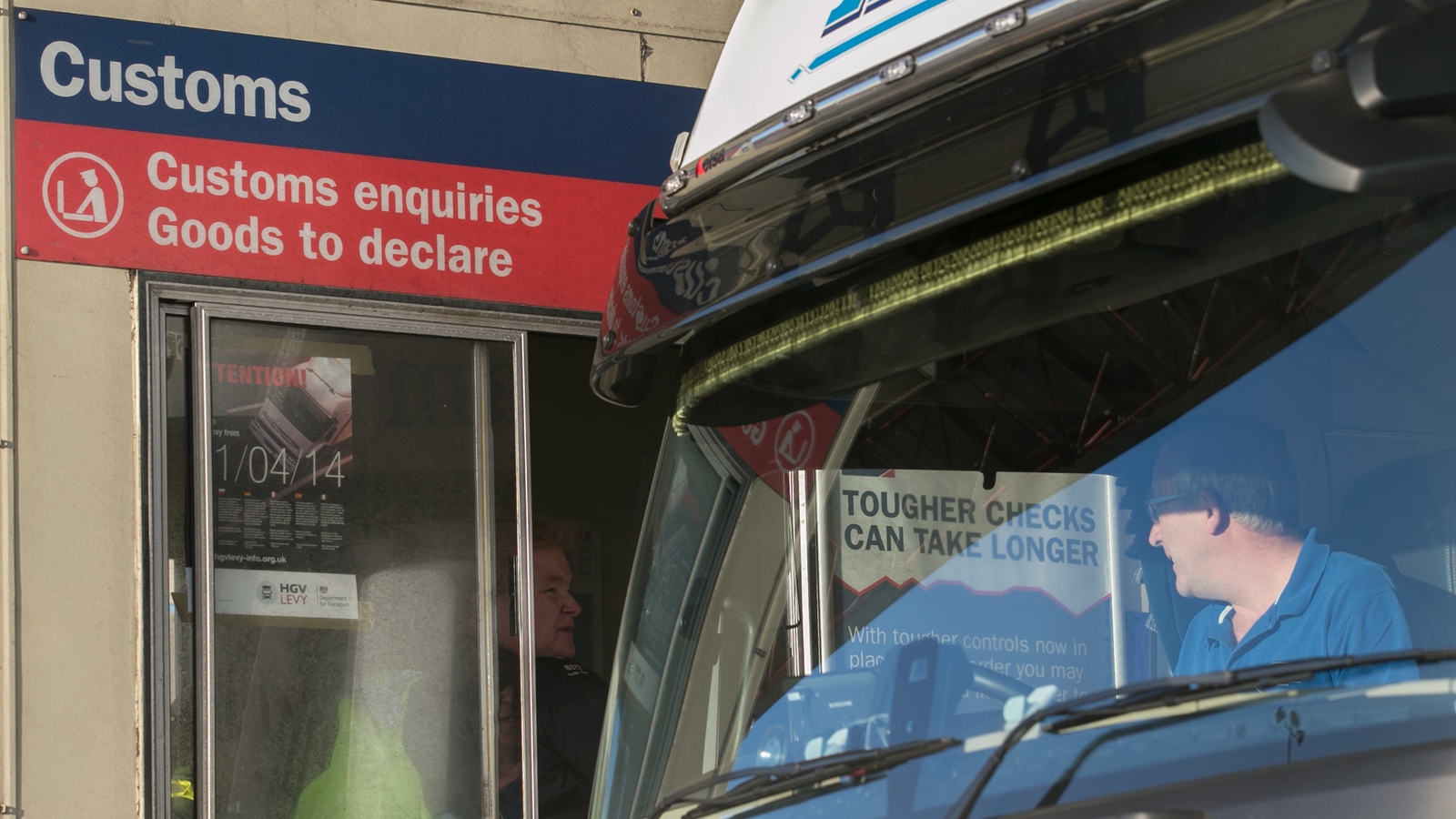Animal and plant products arriving in to Great Britain from the EU may be subject to new post-Brexit customs checks from today.
The development will see products that present a medium to high risk to biosecurity and health undergo more rigorous checks.
But the measures will not impact goods moving from Ireland to Great Britain until next year.
That is because there are different implementation dates for ports on the west coast of Britain, as the infrastructure needed is still not in place.
The British government has said it will announce a date for physical checks on goods arriving from Ireland shortly.
“But in order to provide traders time to prepare these checks will not be introduced before Spring 2025,” a British government statement said.
However, goods which are being imported into Ireland from continental Europe via the land bridge will potentially be subjected to checks and related delays on their arrival at British ports.
“The Government has been engaging with relevant stakeholders to ensure they are aware of the new UK controls and are taking the necessary steps to prepare,” a spokesperson for the Department for Foreign Affairs said.
Spokespeople for both the Irish Exporters Association and the Irish Road Haulage Association said there is not great concerns so far about the impact the changes will have.
The changes are the result of the second phase in the introduction of post-Brexit border controls and checks.
In January, the first stage was implemented when firms bringing agri-food goods into the UK were required to pre-lodge customs declarations and pre-notify the UK authorities.
The British government has said that while the new border checks will start today, they will be scaled up to full check levels in a sensible and controlled way.
The long-term objective is to inspect each shipment of “high-risk” products and up to 30% of goods classified as “medium risk”.
The British Government has postponed the checks on five previous occasions since Brexit came into effect due to concerns about the impact on the economy and because infrastructure wasn’t ready.
Businesses in the UK have said they fear the new checks will increase costs, lead to delays and cause supply shortages.
But the British government has said the food inflation effect will be just 0.2% over three years.

